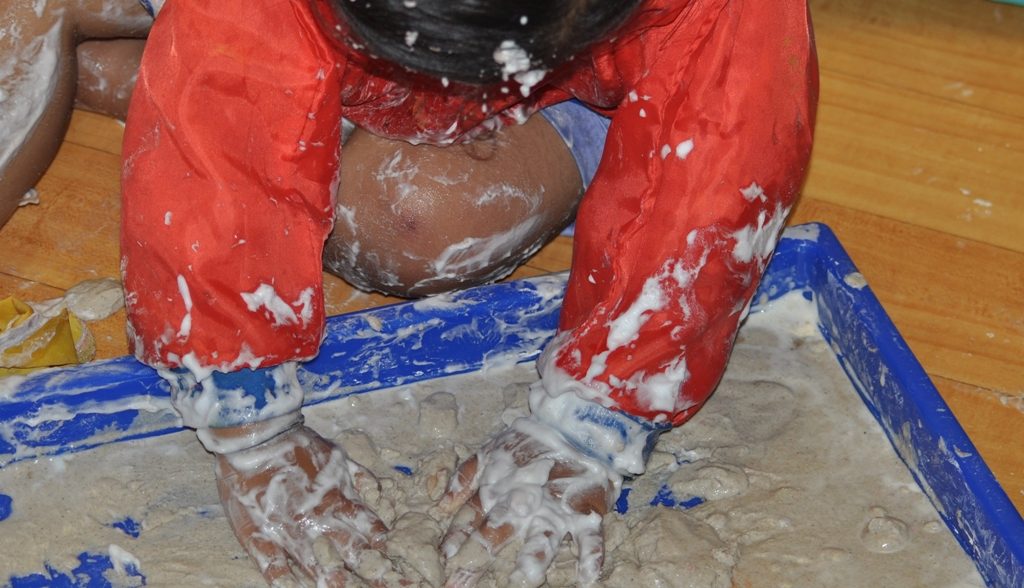How often do you offer toddlers messy play activities?
Messy play is almost a definite for toddlers; they are at the age where they love exploring. How often is messy play happening in your nursery?
When it comes round to offering children these experiences practitioners need to consider the possible learning intentions and not look at the amount of mess the children are making. Sometimes practitioners can be distracted by trying to tidy the mess up instead of getting fully involved.
As some children may be less reluctant to get their hands dirty, these children should be allowed to observe the play and join in at their own pace. No child should be pressured into doing something they don’t want to.
Do you find certain messy play activities are more popular than others? Why do you think this is? Offering a broad range of messy play activities can open up the learning opportunities. Be creative in what you are offering and don’t be afraid to combine activities, for example, add the tray of cooked spaghetti to the role play area. This will allow children to develop their imaginative skills whilst all developing their personal social and emotional skills, language skills and mathematical skills.
Benefits of messy play
Messy play activities are great for babies as it gives them the opportunities to use their senses. It enables babies to us their whole body to explore the activity whether this is by using their hands or rolling around in the shaving foam. The babies will show their enjoyment using facial expressions and noises so look out for these cues. Interaction is important during all activities just because babies can’t talk doesn’t mean practitioners shouldn’t interact and engage with them. Interacting with young children can help develop a close relationship, especially as young children look up to adults for security and building them attachments during play opportunities can really help children feel safe and secure. Providing children with a range of vocabulary that they can store internally and use at a later date can only happen if adults interact, talk and engage with children. Therefore, when carrying out peer to peer observations ensure interaction is top of your observation sheet.
Here are a few messy activities to try
- Add hair gel and under the sea animals to tuff spot
- Add paint to table top cover the table with cling film
- Mix cornflour water and sand together to make quick sand
- Shaving foam and hair gel
- Finger paints on table top
- Trays of ice cubes – use paint to paint the ice cubes
- Tray of paint, fly swatter
- Cornflour and water to make gloop
These are just a few suggestions, there are many more on our Pinterest board.
As nurseries have daily routines to follows as well as children’s individual routines and children attending morning and afternoon session is important to look at how and when activities as offered. Are your activities set out all day for children attending morning and afternoon sessions?
As you can see messy play can help many areas of children’s development and it can allow children to freely express themselves. Therefore, ensure these are being offered throughout the day for all children.

